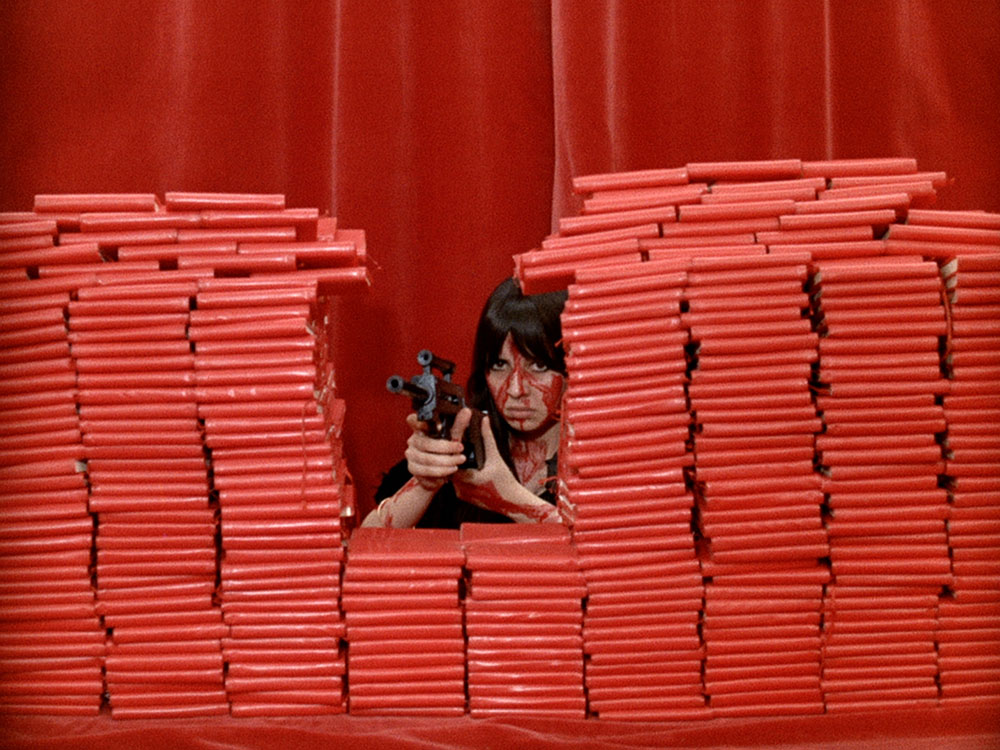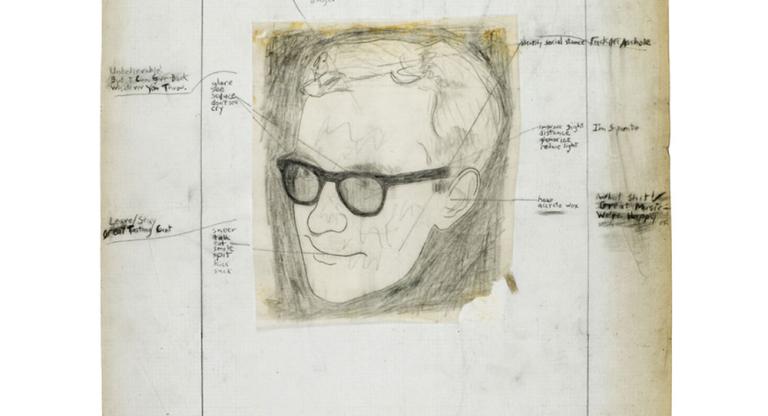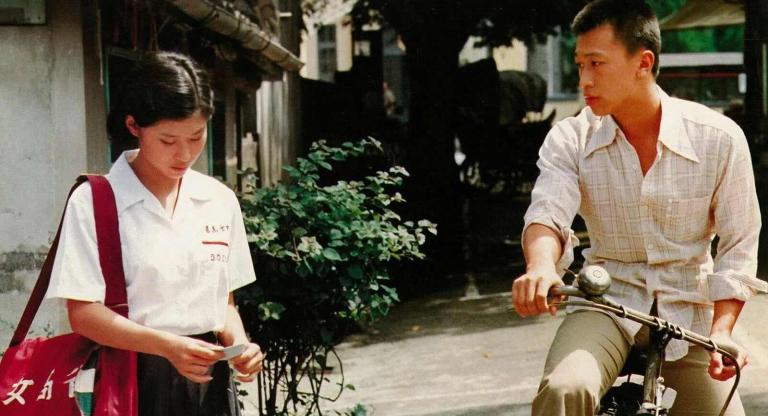In the era of Black liberation, burgeoning counterculture, and the anti-war movement, La Chinoise (1967) signaled the beginnings of Jean Luc-Godard’s leftist acid trip. La Chinoise is a moving pop-art manifesto with theatrical skits of the Vietnam War juxtaposed against monologues of leftist theory soaked in comic-book red. The song, “Mao, Mao” plays on a loop to illustrate the urgency of revolution.
Godard was responding to the shift to new technologies in the post-Fordist era, enabling capital to automate mass production lines and sparking increased consumerism in Western society predicated on the exploitation of the non-Western world. Godard’s dissension into militant filmmaking and agitprop was a colossal fuck you to the hierarchical and repressive systems (Hollywood, the state, imperialism) that institutionalized capitalist oppression. This spirit gave rise to his late-1960s engagement with Maoism and Marxist-Leninism, as well as an interest in both guerilla warfare and bourgeois malaise. In a few years, Godard would be experimenting with collective filmmaking via the Dziga Vertov Group. La Chinoise (or its lesser known title, French Maoists) asks how we can make art politically.
Released a year before students at Nanterre University organized a third-world-inspired struggle that culminated in the May ’68 uprisings, La Chinoise follows five disaffected middle-class students' as they philosophize and debate Althusser, “Ford, U.S.A.,” the Chinese Cultural Revolution, and Lenin’s Imperialism, The Highest Stage of Capitalism in a friend’s lavish apartment over summer break. Yes, these are insufferable and isolated pseudo-bourgeois college students who come together to make a Maoist cell; high off the words of the Little Red Book and the Cahiers Marxistes-Léninistes, they represent what a student activism can look like without militant discipline.
Godard was wrestling with how to bring the revolutionary fervor of the Third World to the West in a way that wasn’t only self-indulgent. He parodies the youth toying with the idea of bombing universities and enacting socialism because it's en vogue at the moment. Still, he also platforms the revolutionary role models intent on bringing about major social change. Omar Diop was a West African anti-imperialist philosopher, artist, and comrade of the FLN, Black Panther Party, and the Movement of Young Marxist–Leninists, Fedayeen Palestinian fighters, and the May ’68 riots. His brief but poignant cameo in the film is one of the many instances in which Godard takes an overt stance for the bridging of theory and militancy to achieve true liberation.
La Chinoise plays tonight, June 4, at BAM as part of their Juliet Berto retrospective.





